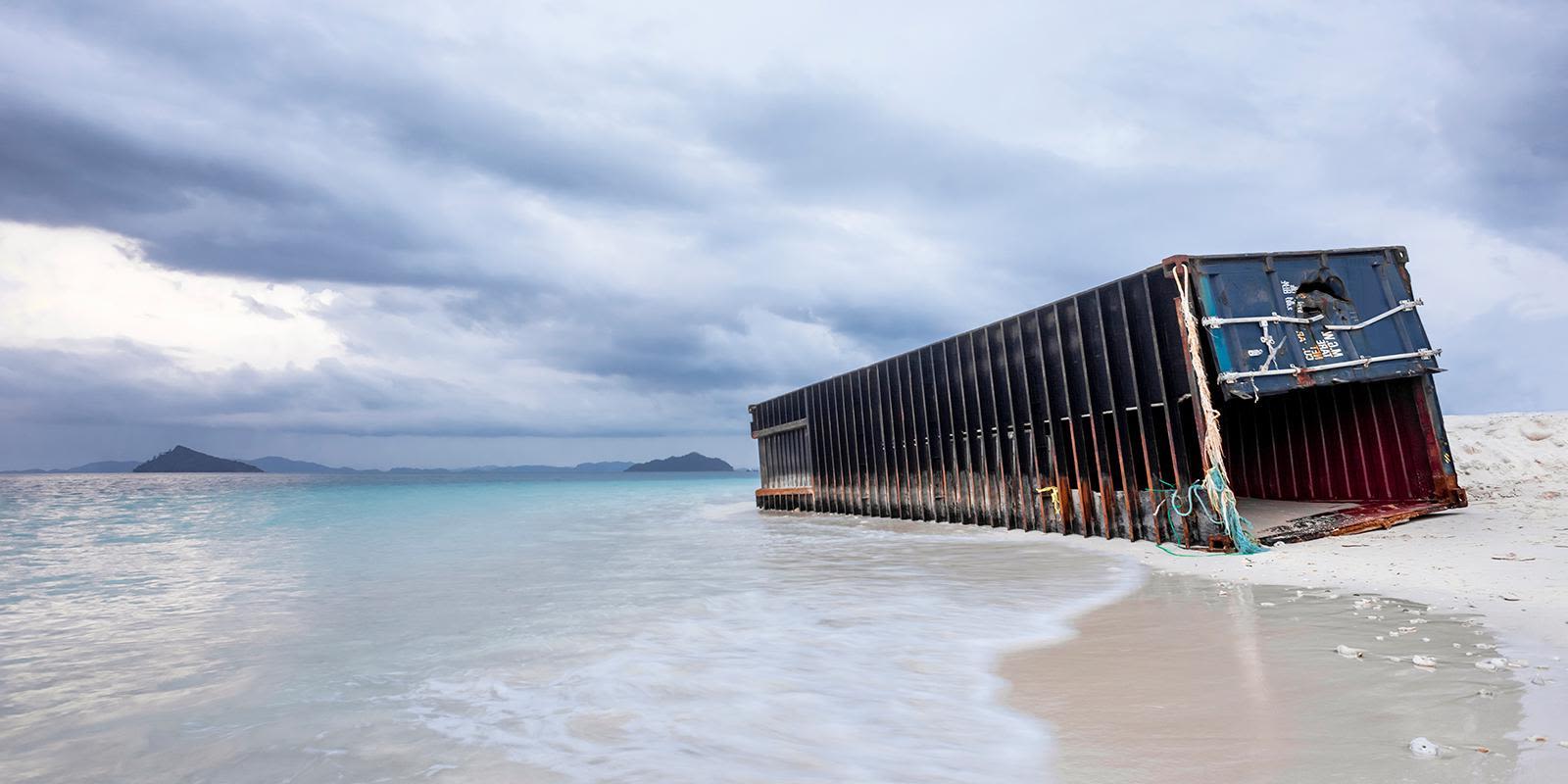
March 1, 2021
As Cargo Accidents Rise, Risk Strategies Shield Business from Loss
Tags:
As Cargo Accidents Rise, Risk Strategies Shield Business from Loss

March 1, 2021
Against a backdrop of already strained container availability, cargo ships are losing more containers overboard than ever before. The spike is dramatic: In the 2-month period between November 30, 2020, and January 31, 2021, almost double the annual average went overboard.
Shippers have narrow recourse when goods are involved in accidents, weather-related or otherwise. Insurance can help, but only when the right coverage is in place. By understanding what drives the current rash of accidents, companies can weigh the risks and choose how to best protect their supply chain from unexpected events.
High Shipping Demand
Unremitting demand is pushing superstacks of containers across oceans at a time when trade is usually slower, creating a perfect storm for loss.
Typically, sailings decrease in winter. The holiday rush recedes by the weeks with the worst weather, save for a smaller peak, timed with Chinese New Year. This year, a long blast of demand, due to Covid and a shift to ecommerce, keeps ships moving across seasons.
On newer ships, containers can stack up to 10 or more high. Ships have been getting bigger, with new Ultra Large Container Ships (ULCS) increasing in total TEU capacity each year since 2018. These giant vessels are built to roll and pitch—but, at a certain point, higher structures are less stable and more prone to sway or topple.
And, the latest casualty, a 260-container loss during bad weather near Japan this month, has some experts ready to review container lashing practices on ULCSs. A restriction on stack height could be ahead, with impacts to overall ship capacity.
Risk Assessment
Container dumps are outliers, but they’re still big events. In the instance of ONE Apus, more than 1800 containers went overboard at the end of November 2020, making it the second largest cargo loss in history. Losses are estimated at upwards of $200 million.
A declaration of general average was initially in the wind, which would have split financial liability for the loss across all shippers with goods on the sailing—even those with unharmed cargo. Today, the likelihood of general average in the case of ONE Apus wanes, leaving shippers to parse the details with their insurers and bridge inventory gaps while cargo remains onboard.
When containers collapse, safe removal is a painstaking process. Goods are only available after months of waiting. As of the third week of February, only 943 containers have been unloaded from ONE Apus.
Safeguarding Cargo
One way to hedge the risks: Set up supply chain redundancies now. That way, if cargo goes overboard or is stuck on a ship, backup suppliers can come to the rescue. Otherwise, depending on product cycles, companies might have to replace lost goods directly with original suppliers, wait out production, and book pricier airfreight to make up for lost time.
Another way: Get clear on insurance policies. Flexport insurance policies cover goods anywhere in the world, but some policies issued by other providers come with geographic restrictions to certain trade lanes or ports. In an era when ship rerouting is often used to make up for congestion and Covid-related delays, last-minute changes, even those beyond shipper control, could undermine coverage.
A financial analysis, before accidents occur, can clarify insurance strategy, too. Weigh the costs of deductibles, time spent on documentation, premium increases after loss, and replacement of goods—in the immediate aftermath and longer term, depending on order volumes.
Meanwhile, cargo insurance costs a very low percentage of the value of goods. Hoping accidents won’t happen, even with low likelihood of loss, means a company is assuming all possible risks.
For Flexport insureds, policies carry a zero deductible for standard coverage and can reduce time spent on claims.
If cargo goes overboard or other known accidents occur, Flexport files pre-claim notices to get the ball rolling for all potentially affected clients—whether insured with Flexport or another provider.
Then, when a Flexport insured wants to file the actual claim, customer data in the platform helps complete the majority of documentation for an easier time.
A solid policy can keep business moving, even when goods are lost. To learn more about cargo insurance, reach out to Flexport.
About the Author

March 1, 2021


